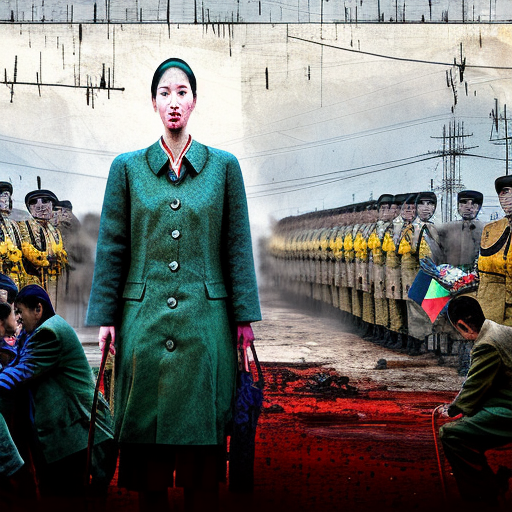One-line Summary:
Nothing to Envy: Ordinary Lives in North Korea provides a gripping and eye-opening account of the lives of six North Koreans, offering a rare glimpse into the oppressive regime and the resilience of its people.
The Lives of Six North Koreans
Nothing to Envy: Ordinary Lives in North Korea, written by journalist Barbara Demick, takes readers on a journey into the secretive and oppressive regime of North Korea through the lives of six ordinary citizens. Demick conducted extensive interviews with defectors and paints a vivid picture of the challenges they face, the propaganda they are subjected to, and the resilience they exhibit.
The book introduces us to Mi-ran, a young girl who dreams of becoming a teacher but is forced to work in a factory due to her family’s background. We also meet Dr. Kim, a dedicated physician who witnesses the devastating effects of the famine that struck North Korea in the 1990s. Mrs. Song, a loyal party member, struggles to provide for her family as the economy crumbles. Jun-sang, a rebellious teenager, becomes disillusioned with the regime after witnessing the execution of his friend’s mother. Oak-hee, a young woman, escapes to China in search of a better life, only to face new challenges as a refugee. Lastly, we meet Kim Hyuck, a young boy who grows up in an orphanage and later becomes a street child.
The Realities of Life in North Korea
Through the stories of these individuals, Demick exposes the harsh realities of life in North Korea. The citizens are constantly under surveillance, with any form of dissent or criticism of the regime resulting in severe punishment. The government controls all aspects of life, from education to employment, and even personal relationships. The people are subjected to relentless propaganda, with the regime’s leaders portrayed as infallible and the outside world depicted as a constant threat.
One of the most shocking aspects of life in North Korea is the widespread famine that occurred in the 1990s. Demick describes the desperation and starvation that gripped the nation, with people resorting to eating grass, tree bark, and even insects to survive. The government’s mismanagement of resources and prioritization of the military over the well-being of its citizens exacerbated the crisis.
The Resilience and Hope of the North Korean People
Despite the immense challenges they face, the North Korean people showcased in Nothing to Envy demonstrate remarkable resilience and hope. They find ways to navigate the oppressive system, whether it’s through black market trading, secret religious gatherings, or simply finding solace in their relationships with loved ones.
The book also highlights the power of information and the impact it can have on individuals. As North Koreans gain access to outside media, such as smuggled DVDs and radio broadcasts, their perception of the regime begins to shift. They start questioning the propaganda they have been fed and yearn for a different way of life.
Key Takeaways:
- The lives of ordinary North Koreans are filled with hardship, oppression, and constant surveillance.
- The famine of the 1990s had devastating effects on the population, with widespread starvation and desperation.
- The North Korean regime uses propaganda to control and manipulate its citizens.
- Despite the challenges, the North Korean people exhibit resilience and hope for a better future.
- Access to outside information can challenge the regime’s narrative and inspire change.
“We were deceived by our leaders. We were like children whose father was a murderer; we didn’t know any better. All we knew was that our father was the best, strongest, and kindest man on earth. How could he be a murderer?” – Barbara Demick
In conclusion, Nothing to Envy: Ordinary Lives in North Korea provides a powerful and intimate look into the lives of ordinary North Koreans and the oppressive regime they live under. Through the stories of six individuals, Barbara Demick exposes the harsh realities, resilience, and hope that exist within this closed-off nation. The book serves as a reminder of the importance of freedom, information, and the indomitable spirit of the human soul.












